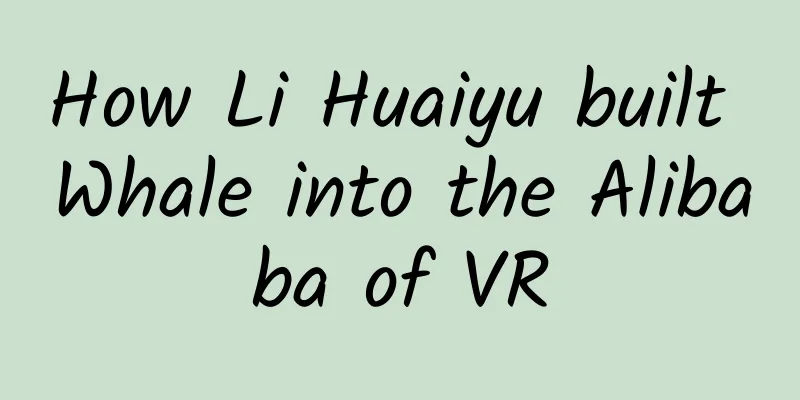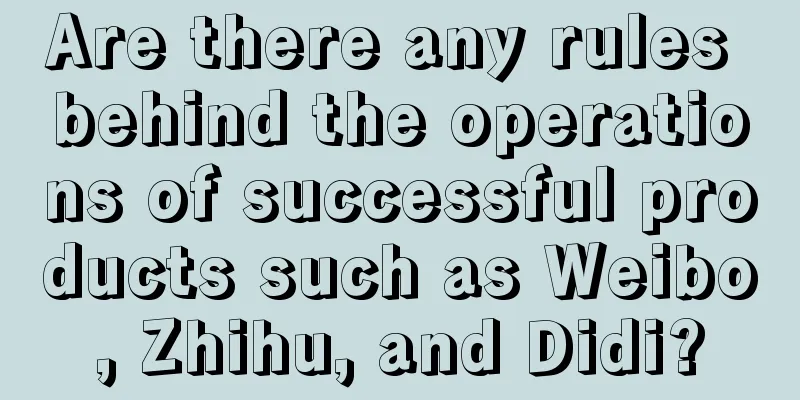Today's headlines are actually fighting against themselves

|
The strictest rectification in history is here, and this time, the entire content industry has smelled a danger far different from the past. On June 7, the Beijing Municipal Cyberspace Administration interviewed online information platforms such as Weibo, Toutiao, and Tencent, and permanently "blocked" a number of "vulgar content" illegal self-media accounts. Subsequently, on June 10, the Guangdong Provincial Cyberspace Administration ordered Tencent to permanently close 30 illegal public accounts. Among the blocked accounts, there are a number of high-traffic accounts such as Quan Xingxing Tan, China's No. 1 Paparazzi Zhuo Wei, Changchun International Trade, and Poisonous Tongue Movies. It is understood that this is the first time that the Cyberspace Administration has launched a large-scale rectification action against media platforms since the "Cybersecurity Law of the People's Republic of China", the new version of the "Internet News Information Service Management Regulations", and the "Internet News Information Service License Management Implementation Rules" were officially implemented on June 1 this year. Compared with the previous verbal "orders to rectify", this time, the strictest rectification in history, the Cyberspace Administration can be said to have really "drawn the sword", and everyone knows that this is just the beginning. Obviously, in the coming days, self-media and content distribution platforms will inevitably face more stringent supervision and governance. Among them, compared with other peers in the content distribution field, Toutiao, which advocates "no values" and relies on "machine algorithms" to recommend "personalized" content to users, seems to be more worrying. You know, this year, Toutiao has been interviewed by the Cyberspace Administration for the third time due to vulgar content. Toutiao has been summoned by the Cyberspace Administration of China three times in half a year, and has become a disaster area for vulgar content. Toutiao, which was launched in 2012, relies on machine algorithms to recommend personalized content and has captured the hearts of a large number of users. As early as the end of last year, it had gained 140 million active users, and each person spent an average of 76 minutes on Toutiao every day. What kind of content was recommended by the machine to these 140 million active users who spent 7.6 billion minutes on Toutiao every day? In April this year, CCTV exposed that Toutiao's client pushed a "vulgar" live broadcast platform to users: Huoshan Live, which involved a large number of female anchors wearing revealing clothes, and attracted users to watch through vulgar performances. On the afternoon of April 18, the Beijing Cyberspace Administration of China, the Municipal Public Security Bureau, and the Municipal Cultural Market Administrative Law Enforcement Corps jointly summoned Toutiao, Huoshan Live and other platforms and ordered them to make rectifications within a time limit. Afterwards, some media found out through checking the business information of the company that the actual controller behind Huoshan Live (Beijing Micro Broadcast Vision Company) is Toutiao (Beijing ByteDance Company). The legal representative of Huoshan Live is Liang Rubo, whose position in Toutiao is the legal representative and general manager of Tianjin ByteDance. This news caused an uproar in the outside world: it turns out that Toutiao's "machine recommendation" is also inevitably "carrying private goods", and actively pushes "indescribable" vulgar content to users. Earlier on January 6, the Beijing Municipal Cyberspace Administration had a talk with Toutiao. The reason was that the Beijing Municipal Cyberspace Administration found in its daily supervision that Toutiao's "Headline Q&A" column had recently published vulgar "vulgar discussion topics" many times, such as "How coquettish can women be when they need it?", "Why are many corrupt officials' mistresses ugly?", "What is a sultry girl?", etc., and the answers were also "vulgar and boring". The Cyberspace Administration made serious criticisms of Toutiao and ordered it to rectify. In addition to pornographic content, Toutiao has also been criticized for being full of "clickbait" titles, marketing information, and false information. Some media commented that Toutiao is like a huge "information garbage dump", which feeds users with "junk information" that is devoid of nutrition but easily "addictive" by continuously catering to the vulgar and dark parts of human nature and solidified aesthetic tastes, thereby achieving its own huge traffic. Repeatedly emphasizing that it is a "technology company", what is Toutiao avoiding? In the face of various accusations from the outside world that the platform is flooded with vulgar content, Toutiao, which is good at "technology", has "developed" a unique set of rhetoric. Since its launch, Toutiao has always regarded itself as a "technology company". It seems that he is determined to make a distinction from the media attributes. Zhang Yiming, the founder of Toutiao, has repeatedly emphasized on many occasions that Toutiao is a "technology company" and "does not interfere with the choice of users". When answering a question from a certain media about Toutiao's values, he even said such a "hard word": "The media has values, but Toutiao is not the media. We pay more attention to the throughput and diversity of information. I can't accurately judge whether this is good or bad, elegant or vulgar." Analyzing Zhang Yiming's set of rhetoric, there are two meanings: First, what Toutiao wants: Toutiao values the throughput and diversity of information, that is, it must have a large enough flow and a sufficient number of information types to recommend sufficiently segmented content to a large number of users. Second, what Toutiao does not want: Toutiao is not a media, but a technology company that uses machine algorithms to distribute information. The quality of information is determined by machines. Toutiao is unwilling and unable to judge the quality and value orientation of information, nor does it need to bear corresponding responsibilities for the content distributed by Toutiao. In a nutshell, Toutiao wants traffic but does not want responsibility and supervision. Is this possible? Obviously, this statement cannot offset the outside world's doubts about Toutiao. Returning to the so-called "first principle", whether for users or for media and self-media stationed in Toutiao, Toutiao is essentially a media platform engaged in content distribution. Content is the essence, and technology is just a means. In terms of media attributes, there is no essential difference between Toutiao and the previous generation of portals. Based on this, Toutiao uses "technology company" as a shield to evade media responsibility and uses the rhetoric of "technical neutrality" to defend the absence of values, which is obviously difficult to convince the public. What's more, Toutiao's so-called "technical neutrality" under the "pure machine algorithm" has been proven to be a false proposition in the Volcano Live broadcast incident. The three consecutive interviews with the Cyberspace Administration of China further illustrate that Toutiao's attempt to use the name of a technology company to evade the responsibilities and supervision that the media should bear is just wishful thinking. Today, the regulatory net has been tightened, and Toutiao, a media platform dressed in the guise of a technology company, is destined to be unable to stay out of the network. Angels and demons have the same face. Analyzing Toutiao's business model, there is no essential difference from traditional online media. It is still a naked traffic business. Judging from Toutiao's revenue data in recent years, its advertising will only be more than traditional portals, not less. In addition to the obvious advertising revenue, the gray area of profiteering under the huge traffic and the strong discourse power it brings may deserve more attention. Recently, Liu Chun, CEO of Zhongnan Films and former editor-in-chief of Sohu, publicly criticized Toutiao on Sina Weibo: "How many self-media outlets make profits by smearing and extorting protection fees? How many companies and individuals are forced to hand over money despite the hardship? How many such black contents are pushed to you by so-called machine algorithms? Shouldn't such so-called self-media platforms (such as "Toutiao") be punished?" From this point of view, the moral torture faced by Toutiao is far more than just fueling the vulgarization of popular culture. Looking back at the history of Toutiao's rise, the machine algorithm recommendation mechanism based on user interests is one of the most important factors for its success. Under this completely data-oriented and de-edited information distribution mechanism, user preferences are everything. Toutiao efficiently caters to user tastes and feeds a large amount of highly matched content, which has won a large amount of traffic and users in a short period of time, and quickly surpassed traditional media platforms, not only creating a new generation of Internet traffic elites, but also achieving great commercial success. However, this machine algorithm recommendation mechanism that only recognizes data also determines that low-threshold content that is good at catering to Toutiao will always get more reading and recommendation. As for high-quality content that requires users to pay a higher learning cost or requires users to have a certain aesthetic level, it is gradually marginalized under the effect of bad money driving out good money. Users who pursue information quality therefore stay away from the platform, leaving behind users who prefer low-threshold content, and constantly strengthen their inherent content orientation in the process of chewing machine-recommended information, forming a vicious circle. In addition, the current machine algorithm can only identify keywords and perform simple semantic analysis, and cannot make a deeper value-oriented judgment on the content. This also means that the algorithm recommendation mechanism will bring higher moral and policy risks to the platform, and it is more likely to attract regulatory strangulation. This is also one of the dilemmas faced by Toutiao. It can be said that it is the machine algorithm recommendation mechanism on which Toutiao relies for its development and growth that determines that it will not be able to get out of the vicious circle of vulgar content for a long time in the future, nor can it achieve the platform's de-vulgarization by simply banning vulgar accounts. In a sense, Toutiao's anti-vulgarity is against itself. As a winner of Toutiao's Qingyun Plan and Baijiahao's Bai+ Plan, the 2019 Baidu Digital Author of the Year, the Baijiahao's Most Popular Author in the Technology Field, the 2019 Sogou Technology and Culture Author, and the 2021 Baijiahao Quarterly Influential Creator, he has won many awards, including the 2013 Sohu Best Industry Media Person, the 2015 China New Media Entrepreneurship Competition Beijing Third Place, the 2015 Guangmang Experience Award, the 2015 China New Media Entrepreneurship Competition Finals Third Place, and the 2018 Baidu Dynamic Annual Powerful Celebrity. |
<<: Honda joins Baidu's Apollo platform to make self-driving cars a reality
Recommend
What is the form of Tik Tok advertising promotion? Analysis of the characteristics of the Tik Tok platform!
Tik Tok is a music short video community focusing...
"April snow" is actually related to gender imbalance? Henan is formulating the first technical guide for prevention and control
In early summer, the catkins of willow trees in Z...
What is the gap between domestic mobile phone manufacturers and Samsung?
Market share and profit amount PK At the end of A...
Amazon announces video download support, which will impact film and television retail
Amazon and Netflix have been competing fiercely i...
A new strain of the virus has arrived? It has been found in more than 60 countries around the world! Will it come to our home?
If you ask what everyone is most worried about re...
Cure diseases and keep fit! The Lancet recommends the most cost-effective exercise, which many people ignore!
Walking may only require you to prepare a pair of...
Tik Tok live broadcast promotion operation tips!
How to increase the popularity of Douyin live str...
Will steamed bread that has been frozen for too long breed "a type of carcinogen"? Warning: The refrigerator is not a "safe"
Expert of this article: Li Jiaxi, Master of Food ...
The fresher, the more dangerous! A type of "daylily" on the high green mountains, if eaten incorrectly, it can cause poisoning!
There is a song whose lyrics may be familiar to m...
Coca-Cola 2020 Christmas advertisement, the most heartwarming work of the year!
There is still a month to go until Christmas, and...
Master these magical features of Safari browser, and you can uninstall other browsers
Apple's native software has always been excel...
American warriors used "magic stones" to fight, which were as lethal as iron weapons
Reviewer: Ma Zhifei Geological science writer, se...
Can the new mission that SpaceX plans to launch really overturn the theory of general relativity?
Introduction: Finding out the true nature of dark...
Future Reading: This could be what Android smartphones will look like in 2022
We’ve seen a lot of major changes in Android smar...
China ranks first in the gold medal list! Olympic champions' tips for relieving stress, you can learn them too!
This technique is Shout To be honest, if you watc...









